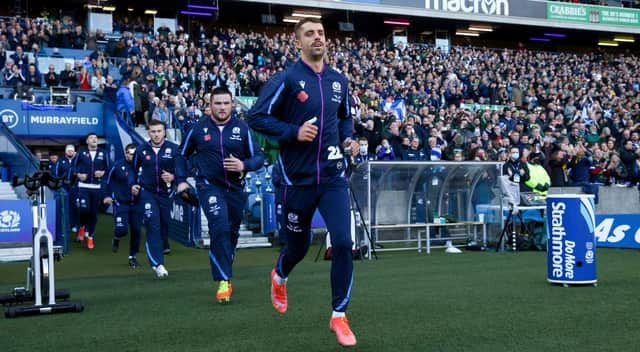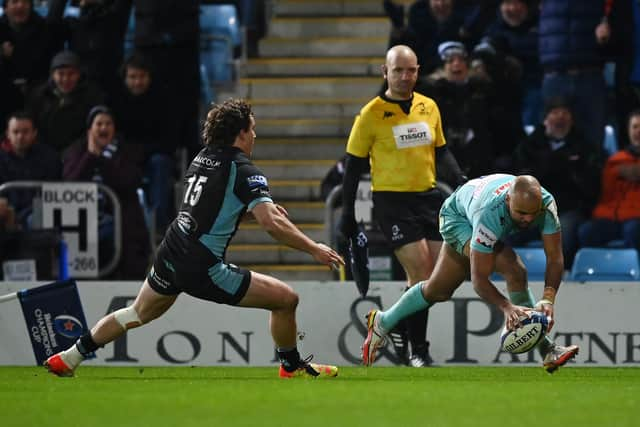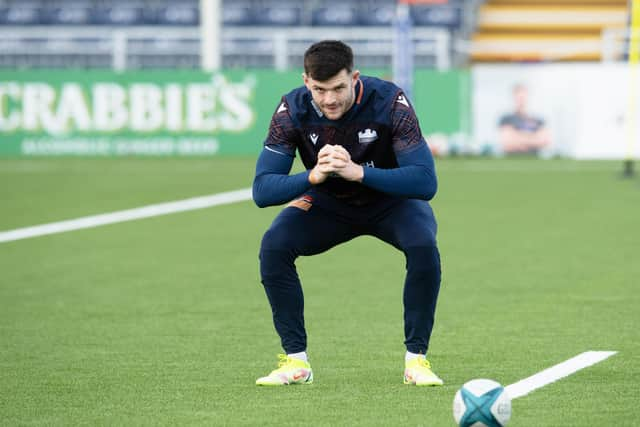Allan Massie: Glasgow Warriors collapse was worrying - and then there's Scotland Six Nations surprises


One had thought they were now beyond this sort of thing. At half-time and for a few minutes after they were going well; victory seemed possible. Then Exeter scored a couple of quick tries, and things fell apart. Of course mistakes are often made when a game turns against you. Players may become over-eager and then structures fall apart. Replacements come on and there is worse confusion. All the same one feels they should have done better. Well, they have a chance to put things right at home to La Rochelle on Saturday.
Gregor’s box of tricks
As is his wont, Gregor Townsend sprang a few surprises on us when naming his Six Nations squad, pulling the London Irish scrum-half Ben White, whom few of us know much about, out of a hat as his No 3 in that position, and omitting Adam Hastings who has been Finn Russell’s deputy for a couple of years, that position now going to Blair Kinghorn. He has been starting regularly at 10 for Edinburgh and doing pretty well, even if not – yet anyway – looking like a natural fly-half. Of course, having Kinghorn on the bench enables Gregor to name a 6:2 split for the Calcutta Cup since Kinghorn covers full-back and also wing as well as fly-half. Still, the omission from the training squad seems a bit rough on Hastings.


Advertisement
Hide AdAdvertisement
Hide AdIt is good to see Cameron Redpath fit again and back in the squad. Given that he will have played only two matches this season, one may think it’s unlikely he can be fully ready for a return to international rugby. On the other hand, training sessions these days are demanding and one might think that if he isn’t ready for the Calcutta Cup, he might be no more ready to play against Wales in Cardiff the following week.
That said, Scotland have more choice in the three-quarter line than for a very long time. Redpath played at 12 at Twickenham last year. Sam Johnson has been mostly the choice in that position since. He is a player who has rarely let Townsend or indeed Scotland down. Now Northampton’s Rory Hutchison is back in the fold, while Glasgow’s Sione Tuipuloti offers power, pace and admirably nimble feet. He has mostly been at 13 for Glasgow, but one assumes than Chris Harris will start there as the commander-in-chief of Scotland’s defence.
Getting our kicks
Well, we have another fortnight’s speculation before us. There is some worry about goal-kicking. Neither Finn Russell nor Blair Kinghorn has been kicking regularly for his club, and it’s reasonable to expect, with no little apprehension, that every other team in the tournament will field a more reliable goal-kicker than we can. It’s true that there are fewer matches now in which the number of penalties kicked greatly exceeds the number of tries scored. All the same, points from the kicking tee still decide a good many matches.


Points from drop-goals rarely do so now. Admittedly we are unlikely to see a game like the 1999 World Cup match in which South Africa beat England 44-21 with the fly-half Janie de Beer dropping five goals. That scoreline might indicate a free-flowing game and would surely do so now, but in fact there were only two tries scored, both by South Africa. England’s 21 points came from six penalties kicked by Paul Grayson and a drop goal from the young Jonny Wilkinson who would of course drop a more famous, and certainly more significant, one in the World Cup final four years later. Now the drop goal is out of fashion, opportunities neglected. Yet it still counts for three points. In the days when we found it very difficult to score tries Chris Paterson and Dan Parks often kept us in matches with a well-taken drop-goal, while Duncan Weir secured a win against Italy with another. Quite often a period of pressure in the opposition 22 ends with a turnover or a penalty conceded, more than one opportunity to drop a goal having been ignored. John Rutherford dropped two goals when Scotland drew 25-25 with New Zealand in 1983, but I suppose the most famous drop goal in Scottish rugby history is the one which Peter Kininmonth dropped from way out under what is now the West Stand against Wales in 1951. That made the score 6-0. It seemed to take the wind out of the Welsh sails, and Scotland went on to win 19-0. Kininmonth, captain that day, played number 8. What about it, Magnus Bradbury, Matt Fagerson or whoever is at 8 for Scotland in a fortnight?